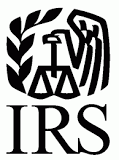On March 11, 2021, the American Rescue Plan Act of 2021 (“ARPA”) was signed into law by President Biden. The ARPA includes several significant health, pension funding, executive compensation and other tax changes. Notably, the ARPA provides temporary COBRA and Affordable Care Act subsidies intended to help people maintain health insurance during the pandemic.
Six months of free cobra
The ARPA provides employers a 100% COBRA subsidy for “assistance eligible individuals” where the qualifying event is an involuntary termination of employment or reduction in hours. An “assistance eligible individual” is any COBRA qualified beneficiary who loses group health coverage on account of a covered employee’s reduction in hours of employment or involuntary termination of employment. The subsidy applies not only to federal COBRA coverage, but also to state law programs that provide comparable continuation coverage.
For a period of up to six months, an “assistance eligible individual” is treated as having paid their COBRA coverage in full if the individual timely elects COBRA coverage. This means the person to whom the premiums are usually paid cannot collect the premium from the assistance eligible individual. One hundred percent of the premium is subsidized by the federal government via a tax credit mechanism.
Tax Credit
The tax credit works by allowing the “person to whom premiums are payable” (the employer for a self-insured plan and the insurer for a fully insured plan) to claim a tax credit for the COBRA premium assistance that was provided to an assistance eligible individual for any period of COBRA coverage during the subsidy period of April through September 2021.
This credit applies against that entity’s liability for the Medicare Hospital Insurance (“HI”) tax (i.e., the 1.45% Medicare payroll tax). It also applies as a credit against any applicable similar tax under the Railroad Retirement Tax Act (“RRTA”) imposed on compensation paid to railroad employees and representatives. The amount of the credit generally cannot exceed the HI tax (or RRTA tax), reduced by any credits otherwise allowed under other COVID-19 relief acts (the Coronavirus Aid, Relief, and Economic Security Act or the Families First Coronavirus Response Act).
The ARPA provides that the IRS could allow such credits to be advanced, and the IRS may issue further guidance about the mechanics of such an advance.
DURATION OF SUBSIDY PERIOD
The ARPA COBRA subsidy period is between April 1, 2021 and September 30, 2021. Importantly, the ARPA subsidy is available only to those whose initial COBRA period ends (or would have ended if COBRA had been elected/did not lapse) either during or after this six-month period. The subsidy does not lengthen the COBRA period.
OPTIONAL New Election Right
Employers are permitted to allow individuals who are eligible for ARPA COBRA relief to change elections to other plan options that have the same or lower cost premiums. This election right is optional and employers are not required to offer it.
Notification Requirement
Plan administrators must notify eligible employees by May 31, 2021 (60 days after April 1, 2021), and the notice must include a description of the extended election options as well as certain plan information. The U.S. Department of Labor is required to issue model COBRA notices addressing the subsidy, and we expect the government agencies to issue guidance on various issues related to the subsidy in the coming weeks.
Please reach out to your ERISA Benefits Law contact if you have any questions about the implementation of this COBRA relief.
American Rescue Plan Act of 2021, H.R. 1319

